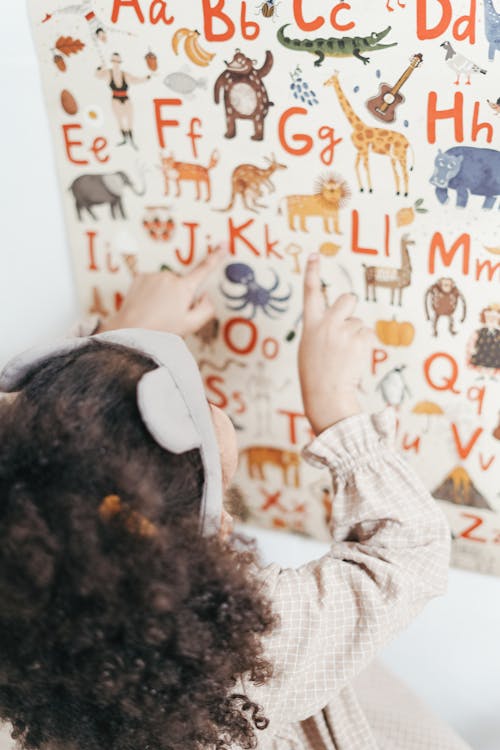Emotional intelligence (EQ) encompasses the ability to understand, manage, and utilize one’s own emotions as well as those of others. This skill is fundamental for building relationships, achieving goals, and maintaining mental well-being.
For special needs children, developing emotional intelligence is particularly crucial, as it significantly impacts their ability to interact socially, adapt to various situations, and handle stress and frustration effectively.
Special needs children often face distinctive challenges that can hinder their social-emotional development. These challenges might include communication difficulties, sensory processing issues, or behavioural concerns.
However, with targeted strategies and support, it is possible to nurture emotional intelligence, allowing these children to lead more fulfilling and resilient lives. By focusing on emotional growth, caregivers and educators can help special needs children build the skills necessary to navigate their world more successfully.
The Importance Of Emotional Intelligence In Special Needs Children

Fostering emotional intelligence in special needs children offers a range of benefits that extend beyond immediate social interactions. Firstly, improved social skills are a significant advantage; children with higher emotional intelligence can better perceive and respond to the emotions of others, leading to more positive and meaningful interactions. This skill not only enhances their ability to form friendships but also improves their overall social competence.
Additionally, emotional intelligence contributes to better self-regulation. Special needs children who can understand and manage their emotions are less likely to experience frustration and outbursts. This self-regulation helps them cope with challenges and adapt to new situations with greater ease. Furthermore, developing empathy is another crucial benefit; emotionally intelligent children are more likely to understand and care about the feelings of others, fostering compassionate and cooperative behaviour.
Academic performance is also positively impacted by emotional intelligence. Children who are adept at managing their emotions tend to have better focus and motivation, leading to improved learning outcomes. Lastly, emotional intelligence equips children with greater resilience. Those who can navigate their emotions effectively are better prepared to handle setbacks and difficulties, contributing to their overall well-being and success.
Strategies For Fostering Emotional Intelligence In Special Needs Children
1. Modeling Emotional Intelligence
Children often learn a lot by watching the behaviours and habits of the adults in their lives. Therefore, caregivers and educators should model emotional intelligence by demonstrating empathy, active listening, and appropriate emotional responses. Consistent modelling helps children understand how to navigate their own emotions and interact with others in a socially acceptable manner. By setting a positive example, adults provide a blueprint for children to emulate, facilitating their emotional development.
Example: Parents demonstrate active listening by making eye contact and nodding when their child speaks. The child learns to listen attentively to others, improving their social interactions and relationships with peers.
2. Teaching Emotional Vocabulary
A significant challenge for many special needs children is identifying and articulating their emotions. Teaching them a comprehensive emotional vocabulary enables them to better express their feelings and understand those of others.
Visual aids such as emotion charts, picture cards, and storytelling can be particularly effective in helping children recognize and label different emotions. This practice not only aids in communication but also helps children develop a more nuanced understanding of their emotional experiences.
Example: Teachers use picture cards to help children label emotions like happy, sad, and angry. Children use these labels to communicate their feelings more clearly with family and friends, reducing misunderstandings and conflict.

3. Creating A Safe And Supportive Environment
A secure and supportive learning environment is vital for the emotional growth of special needs children. Such an environment reduces anxiety and provides a sense of stability, which is essential for effective emotional development. Creating a classroom that is inclusive, sensory-friendly, and positive allows children to feel valued and understood. Positive reinforcement and consistent support help children feel secure and more willing to explore and express their emotions.
Example: A classroom is designed with quiet corners and sensory-friendly materials, making it a safe space for children who are easily overwhelmed.

4. Using Social Stories And Role-Playing
Social stories and role-playing are powerful tools for teaching social-emotional skills. Social stories present scenarios in a narrative format, illustrating appropriate behaviours and emotional responses in various situations. Role-playing allows children to practice these scenarios in a controlled setting, helping them develop practical skills and build confidence. These methods provide children with a clear understanding of social expectations and offer opportunities for them to rehearse and refine their emotional responses.
Example: A child practices a social story about making a new friend and then role-plays the scenario with a teacher. When the child encounters a similar situation on the playground, they can recall and apply the practiced behaviour, making it easier to form new friendships
5. Implementing Mindfulness Practices
Mindfulness practices such as deep breathing, guided imagery, and meditation can be highly beneficial for managing emotions and reducing stress. These practices teach children to focus on the present moment, which helps them develop greater self-awareness and emotional control. Incorporating mindfulness activities into daily routines provides children with tools to manage their emotions effectively, enhancing their ability to cope with stress and maintain emotional balance.
Example: A child uses deep breathing exercises learned in school to calm themselves before a test.By practising mindfulness techniques, the child can manage stress more effectively in various situations, such as during family events or while doing homework.
6. Encouraging Emotional Expression Through Art And Play

Art and play are effective avenues for emotional expression, especially for children who may find verbal communication challenging. Activities such as drawing, painting, and imaginative play provide children with non-verbal ways to express their feelings.
These creative outlets also offer opportunities for educators and caregivers to engage in discussions about emotions and reinforce emotional vocabulary. Through art and play, children can explore their emotions in a safe and supportive environment.
Example: A child draws a picture to express their feelings after a tough day at school. Through art, children find a constructive outlet for their emotions, which they can use at home to communicate their feelings non-verbally, leading to better emotional regulation.
7. Building Strong Relationships with Peers
Developing meaningful peer relationships is crucial for emotional growth. Encouraging cooperative activities, group projects and social events helps children build and maintain friendships. Positive peer interactions foster social skills and emotional understanding. By participating in group activities, children learn to navigate social dynamics, practice empathy, and develop communication skills, which are all essential components of emotional intelligence.
Example: Parents demonstrate active listening by making eye contact and nodding when their child speaks. The child learns to listen attentively to others, improving their social interactions and relationships with peers.
8. Providing Consistent Routines and Clear Expectations
Consistency and predictability in daily routines provide special needs children with a sense of security, which is essential for emotional development. Clear expectations and visual schedules help children anticipate transitions and understand what is expected of them. A structured environment reduces anxiety and helps children feel more in control, enabling them to focus on developing their emotional and social skills.
Example: A daily visual schedule that outlines the classroom activities. Children feel more secure and less anxious knowing what to expect, helping them focus better and engage more fully in their learning.
9. Offering Emotional Coaching
Emotional coaching involves guiding children in recognizing and managing their emotions effectively. This process includes acknowledging their feelings, validating their experiences, and teaching them strategies for coping with difficult emotions. Through emotional coaching, children learn to understand their emotional responses and develop healthier ways to manage them. This support is crucial for helping children build emotional resilience and improve their overall well-being.
Example: A teacher helps a child identify their emotions and suggests coping strategies during a meltdown. Children learn to recognize and manage their emotions independently, which they can apply in different environments, such as at home or in social settings.
10. Involving Parents and Caregivers

Parents and caregivers play a vital role in their child’s emotional development. Providing them with resources and training on emotional intelligence extends the benefits of these strategies beyond the classroom. Workshops, support groups, and educational materials can equip parents with the tools they need to support their child’s emotional growth at home. Collaboration between educators and families ensures a cohesive approach to fostering emotional intelligence and enhances the overall effectiveness of the strategies employed.
Example: Workshops for parents on strategies to support their child’s emotional intelligence at home. Parents reinforce emotional intelligence skills learned at school, creating a consistent support system that enhances the child’s overall well-being and emotional growth.
Customized Programs At KARUNA School: Addressing The Unique Needs Of Each Child

Enhancing emotional intelligence is vital for the overall development and well-being of special needs children. At KARUNA School for Special Needs in Hyderabad, we understand the importance of equipping these children with essential social-emotional skills. Our commitment is to provide a nurturing and inclusive environment that supports their emotional growth and resilience.
Our approach involves implementing effective strategies such as modelling emotional intelligence, teaching emotional vocabulary, and creating a supportive atmosphere. These methods significantly impact children’s social-emotional development. Our dedicated educators and specialized programs are designed to foster emotional intelligence and resilience, ensuring every child has the opportunity to thrive.
At KARUNA, our mission is to deliver exceptional education for children with special needs. We provide a variety of specialized programs and services tailored to each child’s unique requirements. Our goal is to ensure every child receives the support and education they need to thrive.
One of the key aspects of our approach is our customized curriculum. We design a flexible and adaptable curriculum that aligns with each student’s individual learning plan, considering their abilities, strengths, and needs. This personalized approach enables children with autism, ADHD, and dyslexia to excel and progress effectively.
We prioritize small class sizes to provide personalized attention to each student. With a student-to-teacher ratio of 1:5, we ensure that every child receives the focused support they need. This intimate setting fosters a nurturing environment where meaningful teacher-student interactions can flourish.
Our team consists of trained special educators who are skilled and experienced in working with neuro-diverse children. These educators are committed to helping students become happy, healthy, and productive members of society. Their expertise ensures that each child receives the best possible guidance and support, overcoming challenges and reaching their full potential.
We use an assessment-driven approach for all our students. Upon enrollment, each child undergoes a comprehensive assessment to identify their unique learning needs. These assessments allow us to tailor our teaching methods to fit each student’s requirements. We continuously monitor progress and adjust the curriculum as needed to maximize growth and development.
Children with ADHD, dyslexia, or autism often face significant challenges in their academic and daily lives. Issues with motor skills, cognition, and speech can impede their progress. However, with our comprehensive approach, including various intervention therapies, we empower children to become more expressive, self-sufficient, and confident.
Furthermore, we offer quality support to families at every stage. We understand that each child’s needs are unique, and we provide individualized support to help them overcome their specific challenges. Our aim is to help every child achieve a brighter future, filled with opportunities for growth and success.
Enhance Your Child’s Emotional Development!
For more information on how to support emotional intelligence development in special needs children, contact KARUNA School for Special Needs Schools in Hyderabad. Visit our website or reach out to us at karunaspecialeducation.carmel@gmail.com or call 888 501 0847 to learn more about our programs and how we can assist in your child’s emotional and educational journey.
